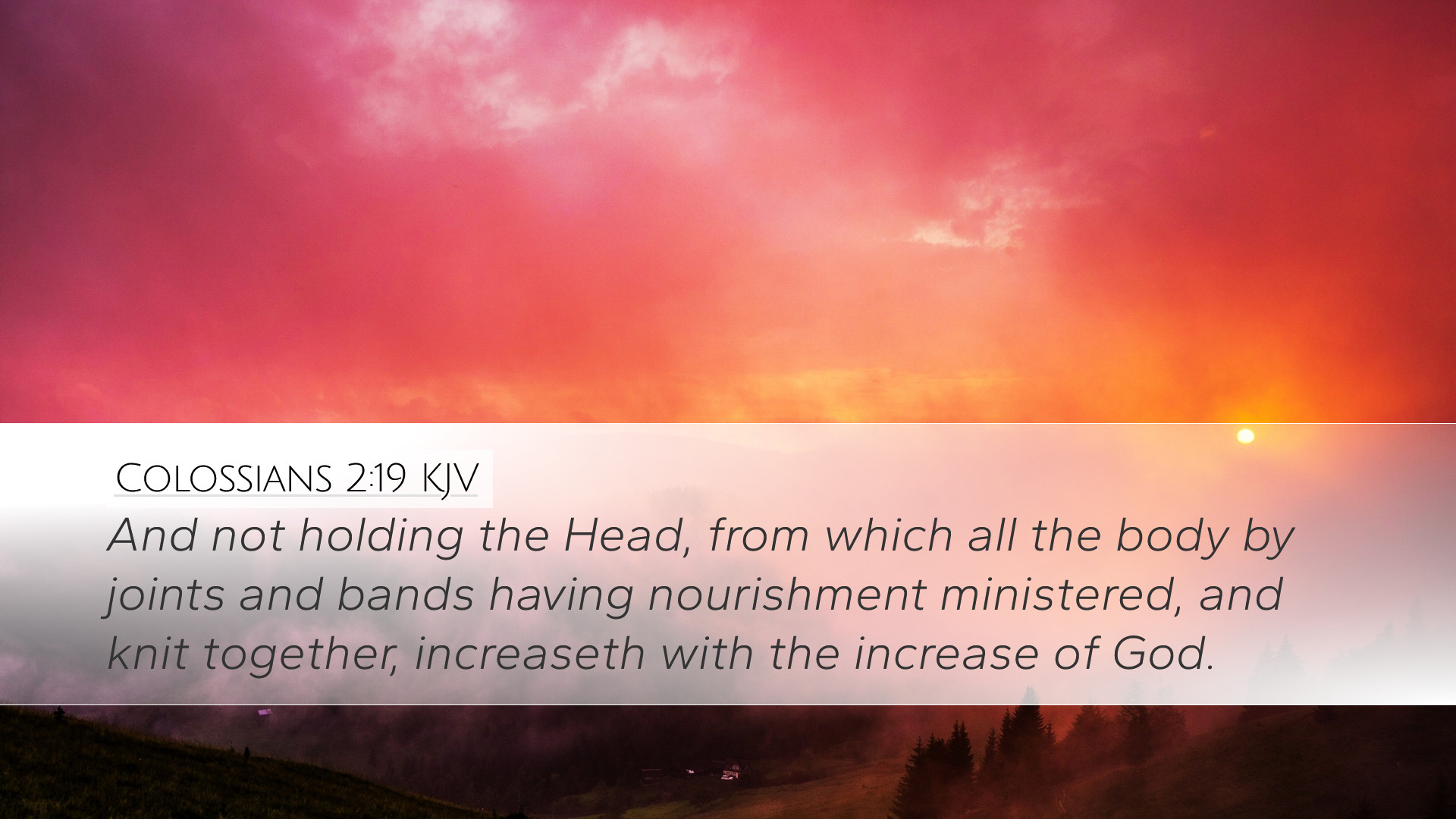Commentary on Colossians 2:19
Bible Verse: Colossians 2:19 – "And not holding the Head, from which all the body by joints and bands having nourishment ministered, and knit together, increaseth with the increase of God."
Introduction
The verse in question, Colossians 2:19, is a critical text within the scholarly discussion of Christ's supremacy and the nature of the church as His body. This commentary seeks to explore this verse through the insights of notable public domain commentaries including those by Matthew Henry, Albert Barnes, and Adam Clarke.
Contextual Background
In this epistle, Paul addresses the Colossian church amidst rising heretical teachings. He emphasizes the preeminence of Christ and the integral nature of believers being connected to Him. The phrase "not holding the Head" suggests a departure from reliance on Christ, the source of all spiritual nourishment.
Exegesis and Commentary
1. The Importance of Christ as the Head
Matthew Henry explains that Christ, as the Head, is the source and sustainer of the church. The lack of acknowledgment and connection to the Head leads to spiritual decay and disunity. Henry emphasizes that Christ provides both governance and nourishment.
- Without connection to Christ, believers cannot function effectively.
- Christ’s role is pivotal; His authority and life flow into the church.
2. The Body's Structure and Growth
Albert Barnes provides additional insight into the metaphoric description of the body comprising joints and bands—a depiction of the church's interconnectedness. According to Barnes, each member has a role that contributes to the growth and health of the body, dependent on the Head, which is Christ.
- The terminology suggests that the believers are bound together in love and function.
- There is an emphasis on mutual support and the organic growth that arises from Christ's nourishment.
3. The Process of Spiritual Growth
Adam Clarke elaborates on the idea of increase, which is not merely quantitative but qualitative, representing spiritual maturity. Clarke believes this growth is a divine process, and it is crucial that believers remain attached to Christ for this increase to manifest.
- Spiritual increase involves realization in faith and knowledge of God.
- Christ’s influence leads to an increase in fruitfulness and good works.
Theological Implications
This verse brings forth several theological themes important for pastoral ministry and teaching:
- Christology: This passage affirms the essential belief in Christ as central to the believer's life and church.
- Ecclesiology: The church functions effectively only under Christ’s headship, which invites a deep exploration of church governance and unity.
- Soteriology: The continuous need for believers to seek growth and nourishment from Christ underscores the relationship between grace and sanctification.
Practical Applications
For pastors and church leaders, Colossians 2:19 serves as a reminder of the necessity to teach congregations about intimacy with Christ. The following applications can be beneficial:
- Encourage believers to cultivate their relationship with Christ as the source of life.
- Teach the importance of unity within the body, ensuring that members support one another.
- Foster an environment where spiritual growth is prioritized and celebrated as a community effort.
Conclusion
Colossians 2:19 encapsulates profound truths regarding the interdependence of believers on Christ and one another. By exploring the insights from Henry, Barnes, and Clarke, we are reminded of the essential role that Jesus plays as Head of the church. Pastors and theologians are therefore called to maintain a focus on Christ, facilitating an environment for divine nourishment and growth.


